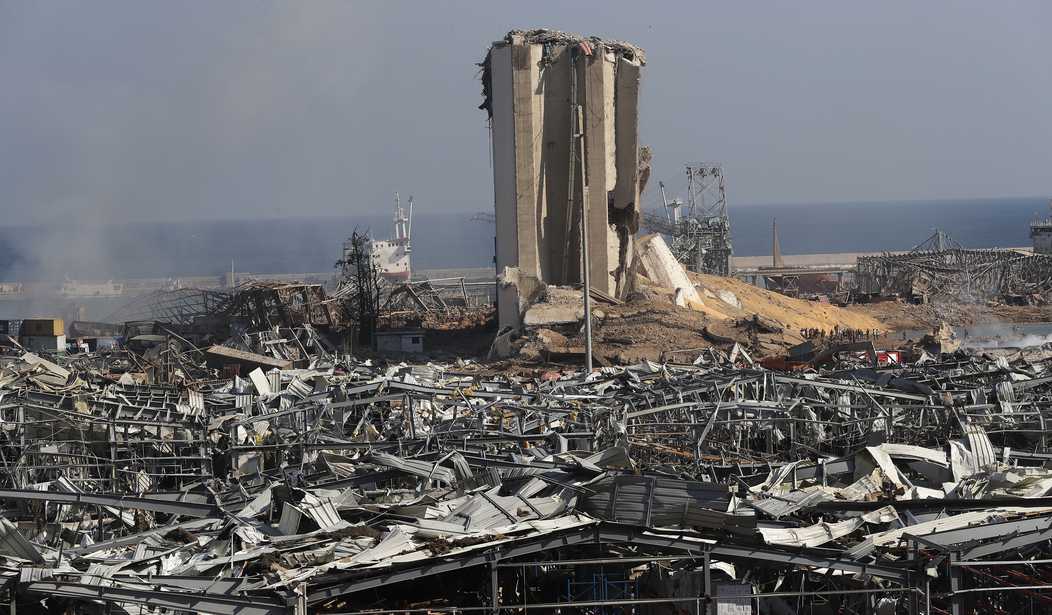Next week Israel and Lebanon are slated to start talks on setting the maritime boundaries between them. That may not seem as dramatic news as Israel’s recent talks with the United Arab Emirates and Bahrain, which yielded normalization deals between Israel and those countries. But in their way, the Israel-Lebanon talks could be no less dramatic.
It was about a decade ago that Israel discovered huge gas fields in the Mediterranean. By now, its Leviathan and Tamar fields are turning Israel into an energy powerhouse. Lebanon, too, could have started exploring back then — but it would have required negotiating with Israel to demarcate the waters of these neighboring countries. Lebanon — where Hizballah is the dominant force — couldn’t do that because it would have meant implying that Israel had a right to exist.
Ten years later Hizballah still, of course, holds Lebanon in its grip — and yet the talks are set to proceed. It’s not because Hizballah’s destroy-Israel outlook has changed in the slightest. Lebanon, however, is in such desperate straits that even this Iranian-backed terror organization’s ideological purity has had to admit a few cracks.
For one thing, under the combined pressures of U.S. sanctions on Iran and Hizballah, decades of corruption and mismanagement, and the COVID-19 crisis, Lebanon’s economy is at the brink of collapse — only to suffer yet another blow with the disastrous August 4 explosion of 2,750 tons of ammonium nitrate in Beirut port. While no one seems to know whether Hizballah greenlighted next week’s talks with Israel, clearly it didn’t have the gumption to stop them.
And as if all that weren’t enough, Israel has been applying another kind of pressure.
During his speech to the United Nations last week, Prime Minister Benjamin Netanyahu revealed a map of a secret Hizballah missile factory in the Beirut neighborhood of Janah — one that’s mega-dangerous like the ammonium nitrate Hizballah is believed to have been storing in the port. The Janah missile factory, as Netanyahu graphically showed, is
adjacent, a meter away, from a gas company. These are gas canisters. Right here. It’s a few meters away from a gas station. It’s fifty meters away from the gas company. Here are more gas trucks. And it’s embedded in civilian housing here, civilian housing here…. I say to the people of Janah, you’ve got to act now. You’ve got to protest this. Because if this thing explodes, it’s another tragedy.
On the same night as Netanyahu’s speech, the Israel Defense Forces revealed two more Hizballah missile facilities in Beirut. One was “built beneath four seven-story apartment buildings in which 70 families live”; the other was “located under a complex of five apartment buildings in which 50 families live.” A follow-up report three days later said Hizballah had already tried to move equipment from one of the sites to another location in Beirut.
The IDF believes all three sites are involved in Hizballah’s PGM (precision-guided missiles) project in Lebanon — which the IDF sees as a potential game-changing threat because PGMs could challenge even Israel’s sophisticated air-defense systems and hit sensitive sites.
But as Israel displays its total intelligence penetration of Lebanon and ability to track all of Hizballah’s moves, another Israel-Hizballah war looks even less promising for Lebanon and indeed to Hizballah itself.
Even without a war, of course, Israel is driving home to the Lebanese populace that just having Hizballah operate among them entails severe dangers. The August 4 port explosion killed at least 200, injured about 6,500, and caused an estimated $15 billion in damages, and on September 22 another Hizballah arms depot went up in flames in the village of Ain Qana.
The upshot of all this is next week’s maritime-boundaries talks. Not only is a desperate Lebanon seeking to rescue itself from the economic debacle that Hizballah rule has brought upon it, but the talks could lead to an easing of the threat of war as well.
As Israeli commentator Eyal Zisser points out, if the parties reach a deal and Lebanon starts harvesting natural gas,
it will further curtail Hezbollah’s leeway. The Lebanese people will not forgive Hezbollah if it drags the country into war and endangers the gas field, which many hope would be a pipeline to economic relief.
Boxing in Hizballah to that extent, with the Lebanese people increasingly able to breathe again, would be no less momentous — maybe more — than Israel’s breakthroughs with the UAE and Bahrain.
P. David Hornik, a longtime American immigrant in Israel, is a freelance writer, translator, and copyeditor living in Beersheva. In addition to PJ Media his work has appeared in National Review, American Spectator, Frontpage Magazine, New English Review, American Thinker, The Times of Israel, the Jerusalem Post, and elsewhere. Among his books are Choosing Life in Israel and, newly released by Adelaide Books, the novel And Both Shall Row.
Israel-UAE Peace Deal Could Point the Way to a More Rational Middle East









Join the conversation as a VIP Member